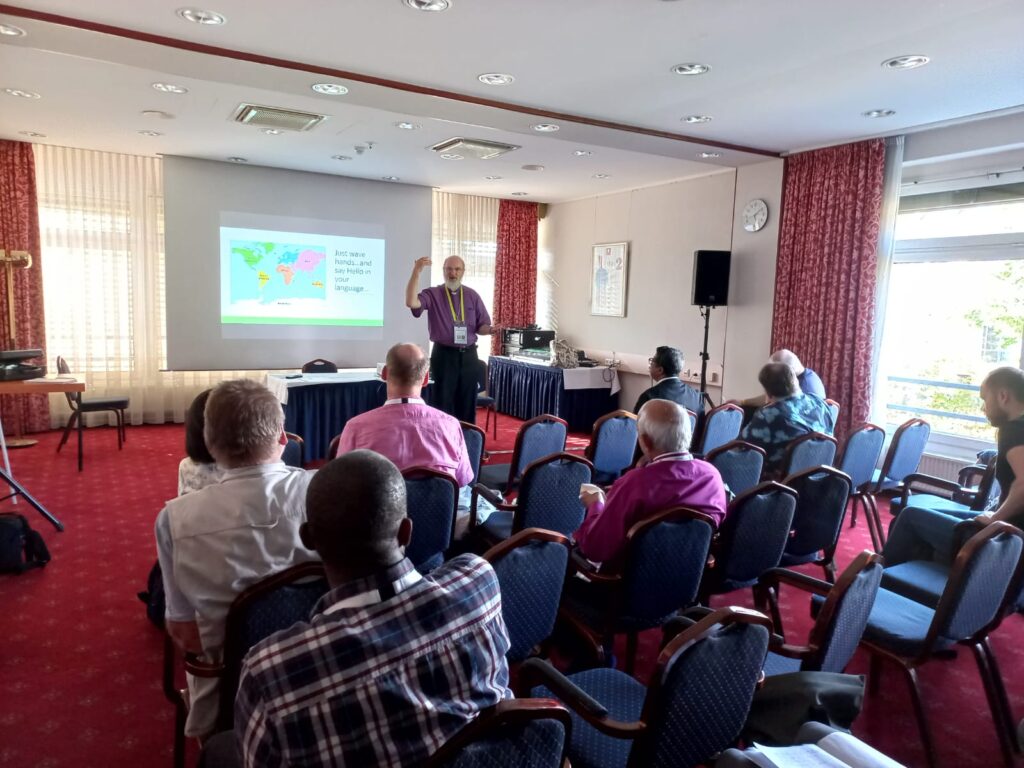By P C Matthew, Upcoming Global Director, WEA Missional Family Ministry
The World Evangelical Alliance (WEA) and the World Council of Churches (WCC), two of the three largest global networks of Churches and Christian organisations, are concerned about the decrease of faith in families, churches, and the next generation. Through a workshop led by the WEA, this topic was discussed during the recent WCC General Assembly in Karlsruhe on 5th September, 2022. Bishops, clergymen, evangelists, and a small number of lay leaders from various church were present at the workshop. It was attended by leaders from Europe, Asia, Africa, and few from North America.

Numerous studies conducted in the western world by Pew Research, Barna, and other church projects that testify to the reality that faith is eroding was presented. The present teens and kids in many regions of the world, both from the global north and south are abandoning their Christian faith when they move into high school and universities. Many of them have even opted to become atheists and agnostics, rejecting the religion of their parents. Both churches from the east and the west find it to be a serious source of worry. Concern exists regarding the next generation’s and families’ waning faith in the church. The younger generation’s attendance at churches that were thriving a few decades ago, like the one in South Korea, has been drastically declining.
What factors lead to it? According to their perspective and context, the workshop participants identified a variety of explanations for the fall in faith, but there was a greater degree of agreement with growing “individualism” and “Privacy.” The factors that workshop participants felt contributed to such a cause of faith decline are listed below in the word cloud.
The numerous explanations for faith loss provided by the participants reflected their individual circumstances and life experiences. However, they were unable to identify any specific factor that could account for the phenomenon on a global scale.
The presenters P C Mathew and Lubo referred to a passage in the Bible where a similar pattern was documented. Within one generation of entering the promised land, the Israelites’ faith began to erode. The leader Joshua, who succeeded Moses revealed to Israel the instructions the Lord gave them to follow in the Promised Land which is recorded in Deuteronomy 6:1-9. From the time their children woke up to the time they went to bed, they were to intentionally pass on their faith. To make an everlasting effect on their hearts, the parents were tasked with transmitting faith by exemplifying it and sharing it with their children. A generation that witnessed God’s tremendous hand failed to obey the mandate given to them, leading to the rise of a generation that had no connection to their parents’ faith. Judges 2:10 records that there grew a generation that neither knew the Lord nor what He had done for Israel. It just takes only one generation for faith to decline and reach to its lowest.
This emphasises the need for intentional faith transmission within the context of one’s own family, with the assistance of the larger household of God known as the Church.
God’s design for passing on faith makes “Home” the primary place, while the “Church” complements it. The church aids and actively supports the saints in carrying out their duties as assigned by God. The participants’ suggestion that “individualism” is the root of declining religious belief is quite valid. A child is left to choose whether to embrace or reject faith based on their own investigation of it. It is not regarded as a directive that parents must follow to instil in kids’ hearts. A generation that does not know God through their life and experience, will not be able to pass it on either.
The church and its leadership must see this need to grow faith as an important mission. They should strategize to restore faith through preaching, teaching, and empowering their members to develop their own faith and pass it on to their children. Churches’ efforts to directly influence the next generation have not been very successful because parents have most of the spiritual authority over their children. Infusing faith in parents and empowering parents to live out missional lives needs to be the first goal of the Church. Aiming for those five healthy traits to grow in a Christian home, the missional family model described in PC Mathew’s book “Becoming a missional family” was discussed with the participants. To foster the ideal environment for the next generation to witness genuine faith practised, is to build missional homes. This results in church becoming missional because of its members leading missional lives.
Growing faith cannot be accomplished with a quick fix program-based approach since it is a serious problem that has been caused by the neglect of earlier generations. This must be an intentional process of prayer, repentance, and renewal of our thinking. It requires the Church to move from being “Church centric” to “Home centric”. Faith is nurtured at home supported by the Church. For the church’s laypeople and leadership to intentionally achieve this paradigm shift, it will take time. The need for the vision to increase faith must spread throughout the entire church. The need to equip and guide God’s people to be relevant in the context of a needy world with the love of Christ should not be seen as a call for religiosity, but a call for genuine life with Christ.
The goal is to envision a generation that would not perish but uphold higher standards of God in their life and witness. It is not a call to experience some sort of personal ecstasy but rather the establishment of God’s Kingdom of righteousness and justice. It is important that this vision must be shared by the entire church. We anticipate that the discussion started by WCC, and WEA will encourage future efforts to collaborate and work with a sense of urgency to redeem the next generation from a godless eternity.





Stay Connected